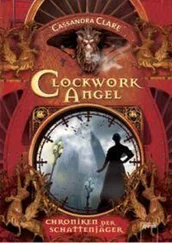And it was a fortunate thing too it had rolled where it had because when Reggie had fallen he had hit smouldering wood unlike the gold crescent which had landed in blue flame.
“I’m a bird,” shouted Reggie again, stretching out his arms, blissfully unaware of the moon in his pants.
Eventually, the moon began to tire. So it could continue its journey into space, it brought Reggie down, dipping him twice more, for it knew how he loved it, and then tenderly depositing him in the fork of a gum tree.
Gliding free, it rose up behind him, drifting higher and higher, a little white pearl against night satin. The moon had saved Reggie as had Reggie the moon, though the big man would never know it.
“Did you see me?” Reggie shouted breathlessly.
“Yes I did,” replied Mohammed Muneer and he said nothing more.
He just gazed at the moon until it disappeared into the heavens, leaving nothing behind but the brightest of lights which shone down on Reggie still sitting in the tree, then down further onto Mohammed Muneer, who understood now that the moon never belonged to him—but gave thanks that he had the good fortune to be the moon-keeper’s friend.


THE TAILOR OF TIME
by Deborah Biancotti
The Tailor of Time sat at his sewing machine, stitching night to day.
He joined the clear cloth of dawn to a full bright afternoon like a circus top. Then he smoothed on a panel of smoky rouge for dusk and finished it off with a thick purple evening. Brushing his hand over the result, he felt a thin echo of satisfaction.
The Tailor worked with a minimum of noise or fuss. He suffered only the occasional grunt or shrug (to indicate ‘this is done’ or ‘bring me cloth’), aimed at the tyros who also worked in his rooms. The tyros were pale, bald children that could pass as the Tailor’s own. They looked like a ramshackle circus, dressed in scraps of cloth that tied at waist or shoulder. They worked at the Tailor’s demand, darning or mending or gathering what needed to be darned, or mended, or gathered.
The Tailor ignored them. He existed in a meditative cocoon, his voice so unused it had all but healed over. His mouth sagged like a pocket, his eyes drooped like the shoulders of an old suit and his whole body slumped like a smock on a hanger.
Only his hands remained steady, darting leanly under the light of his sewing machine and out again before they could be caught by the quick, sharp tooth of the needle. In and out, swift as the very machine itself. In and out.
With the day laid out in cloth before him, the Tailor added a hem, threaded a drawstring through both ends and slung it like a cloak over a bare globe to his right.
Thus dressed, the globe was spun onto tracks like train tracks, where it butted against other globes and sloshed with the weight of water in its guts.
The water served to hold it steady.
Dismissed, the globe and its partners creaked and shuddered, working their way along the tracks circumventing the room. They passed the industrious tyros, the bare stone walls and heavy curtains of the room. They passed towards the arched window in one thick-cut wall, and would have passed out, but here they snagged and pushed back, bubbling against each other.
Coming through the window was a man. He shoved his way into the chain of gowned globes and climbed into the Tailor’s room.
The tyros saw him first. In a sudden frenzy of panic they fell into a silence even deeper than their usual quietude. One ran towards the Tailor and stopped, confused, unsure how to encroach on her master’s concentration. One ran towards the man, the stranger, and halted just as cautiously as her cousin.
The Tailor was unaware of the alterations in the room, sewing night to day, day to night. Until he received a bobbing tap to his elbow from his most recent globe (scuttling back along the tracks), and jumped hard in his seat.
His finger snagged in the great machine, and the Tailor cried out to see the cruel incisor pierce all the way through. Blood beaded into the sworls of his fingertip and spilled on the cloak of time he was making.
“Oh!”
The first clear sound he’d made in a hundred years.
“Ouch!”
The second.
He stepped off the foot-pedal at once and rescued his stricken finger, pulling his bloody hand free. He drew the injured appendage to his lips to taste the unexpected saltiness of his mistake.
On the cloth with the bloodstain, war broke out for a day. It commenced seemingly from nothing and returned there just as quickly. History would refer to it as the War of Hours.
The Tailor, however, was not concerned with this. He looked up to find the cause of the commotion and caught at once the eye of the intruder. The man had completed his expedition through the window and now stood surrounded by tyros up to his waist.
The tyros divided their gazes between the stranger and the Tailor, chewing the blood out of his injury.
The stranger said, “You the Tailor of Time?”
The Tailor, mouth still entertaining his finger, nodded.
“You make the cloak of time that clothes the world, you determine night and day, the colours, the length of hours, the pattern of seasons and years?”
The Tailor nodded and shrugged so that his ear travelled painfully close to his shoulder. He hoped to signify both regret and well-intentioned acceptance.
“Then my name is John Avery, and I have a favour to beg.”
The Tailor cleared his throat, but the first sounds to come out were not words. He had to try twice more before he managed to say, “Beg it. John Avery.”
Avery drew breath. “Tailor,” he said. “You are largely forgotten where I’m from, and many places besides.”
Not forgotten enough, it seemed. Though the Tailor was engaged in the act of polite conversation, it did not escape his attention that Avery had breached walls which had not seen a visitor in hundreds of years.
Avery was not privy to the Tailor’s befuddlement. He dragged an empty stool to the Tailor’s side, and rested his elbow on the table where the machine sat glowering and grinning.
Up close Avery was older than his spryness belied. Much older than an adventure like this warranted, climbing walls and windows and rooms, vaulting or swimming, surely, the moat which still must hug the base of this fortress. He had a light beard that deepened to faded brown at his ears. His hair was thick but receding, lending him a horned look. And he had long, wiry eyebrows over narrow brown eyes. He looked kind, but sure, and careful.
“I paid witches and bribed fools,” he said. “I followed dreams and rumours from elders and madmen, seers and scientists. It took three years.”
“And,” said the Tailor, voice still thick and unpractised, “what do you want?”
“Time.”
Of course.
“I want you to slow down time for a day. No, an afternoon. A set of hours, even. Just some small, very small, amount of time.”
The Tailor let out a bark that might’ve been a cough, might’ve been, instead, some descendent of laughter.
Avery continued, “You expected me to ask that.”
The Tailor nodded.
“You want to know why I ask?”
A grunt, meaning ‘naturally.’
Here it came, all sorts of tales of great deeds and discoveries to be made if only time would permit. Of acts of humanity planned and mistakes to be rectified. Of love to be given or taken, of fears that must be faced, of favours to be returned. Particularly to the Tailor, if only he would grant this one wish.
Читать дальше














